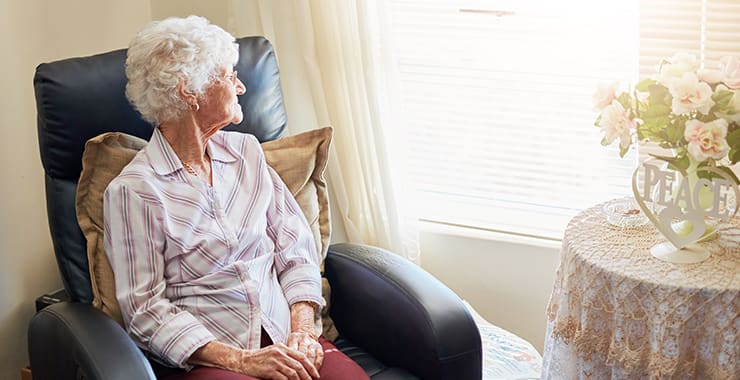Information for providers of in-home care regarding coronavirus COVID-19 and supporting people living with dementia.
In addition to the infection control measures aged care providers are implementing in response to coronavirus COVID-19, the following outlines some considerations for people living with dementia. Some initial suggestions have been provided below and more detailed information is available through contacting the Centre for Dementia Learning on 1300 DEMENTIA or the National Dementia Helpline on 1800 100 500
Impact for a person living with dementia
Reduced understanding or heightened anxiety about coronavirus COVID-19
- Ensure information provided is from an authoritative source such as the Australian Government Department of Health or the World Health Organisation
- Minimise flow of media information by suggesting that clients don’t have the 24-hour news cycle on TV
- Recommend the use of memory aids and reminders about washing hands and hygiene
- Take the time to listen to the person and their concerns
- Validate how the person is feeling
- Provide reassurance
- Make sure regular time is spent with the person ask how they are going and if they have any questions
- Try to avoid talking about your own anxieties or concerns in front of your client
Changed service delivery across the categories of in-home care
- Maintain usual routines as much as possible
- Where routines cannot be maintained, work with your client (and their families or carers, as appropriate) to identify alternative meaningful activities
- If you are looking for alternatives to social support, you may wish to consider the following strategies:
- Try to encourage the person living with dementia to consider doing some gentle exercises either in a chair or around the house
- Having things readily available such as books, magazines, jigsaws, music, knitting, TV and radio programs they enjoy may help
Emerging or changed behaviour due to isolation, change of care routine, reduced social contact and activities
- Encourage participating in everyday activities
- Maintain regular routine as much as possible
- Seek to respond to changed behaviours in a timely way should they emerge
The risk of the client becoming unwell
- Monitor for flu-like symptoms
- Monitor for changes in behaviour
- If the person you care for becomes unwell and experiences coronavirus COVID-19 symptoms contact coronavirus COVID-19 hotline 1800 675 398 or contact their doctor
Impact on families/friends – supporting clients who are self-isolating
- Clarify with your client before entering that anyone living in the home is not self-isolating
- For further advice on the approach to in-home care services, www.health.gov.au/ news/health-alerts/novel-coronavirus-2019-ncov-health-alert/coronavirus-covid19-advice-for-the-health-and-aged-care-sector
- Avoid visiting if unwell
- Try to arrange other means of communication- iPad, facetime, skype, google nest, phone calls, social media messaging if applicable.
For further advice contact our contact National Dementia Helpline on 1800 100 500
The Centre for Dementia Learning has a comprehensive range of education programs to help aged care providers address many of the issues raised above. For further details contact 1300 DEMENTIA.
The above information was based on information provided by Alzheimer’s Disease Chinese (ADC) and shared by Alzheimer’s Disease International. You can find the full presentation here: www.alz.co.uk/news/covid-19-sharing-experience-and-advice-from-adismember-association-in-china
The coronavirus situation is rapidly evolving. This information is provided as a guide only and may not be appropriate for every situation. For up to date information on the coronavirus, visit www.health.gov.au/news/health-alerts/novel-coronavirus-2019-ncov-health-alert
Dementia Australia would like to acknowledge Alzheimer’s Disease International and Alzheimer’s Chinese for their advice in putting together this help sheet.

